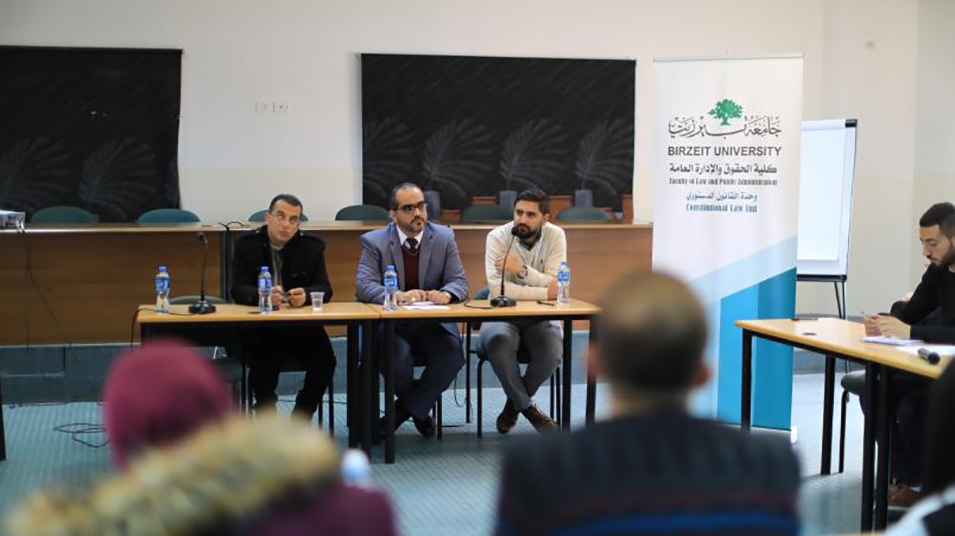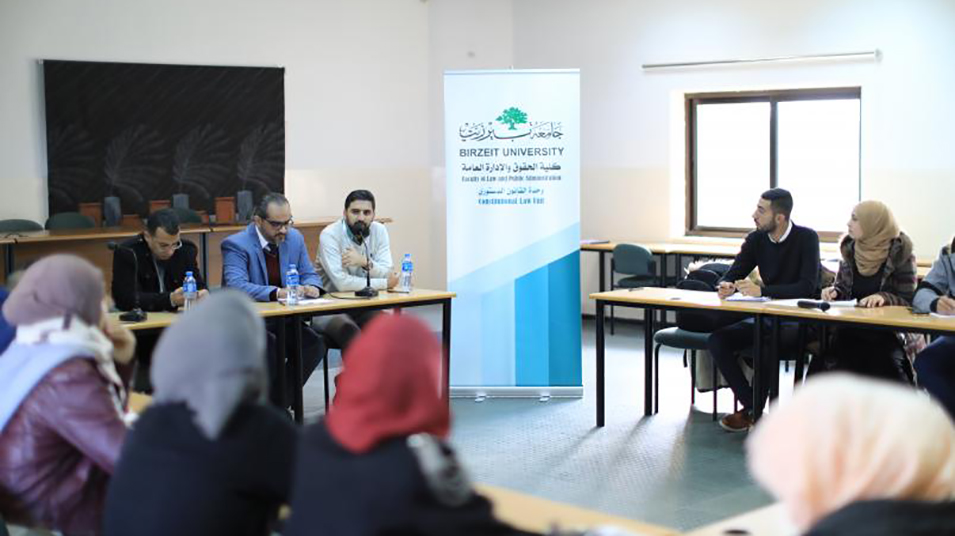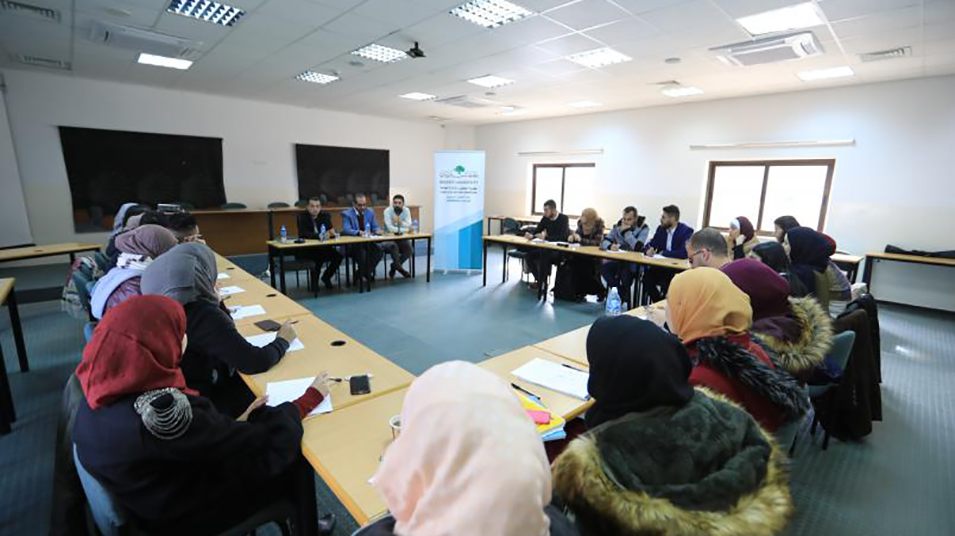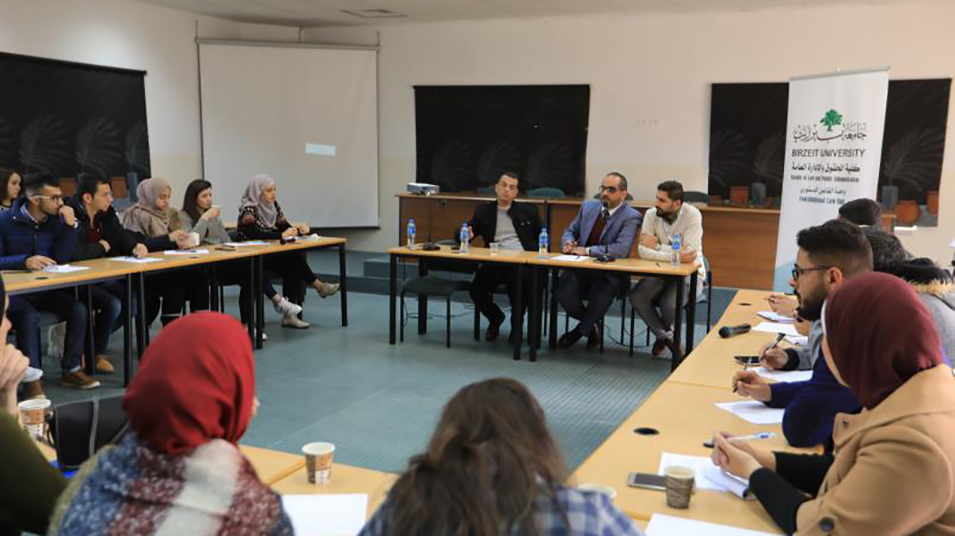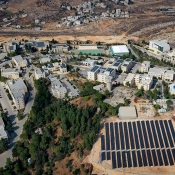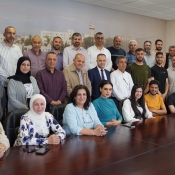Students, researcher explore Palestinian social contract, relationship between citizens and the state
Birzeit University students, together with members from the Palestinian Association for Empowerment and Local Development (REFORM), discussed the relationship between citizens and the state, and how the Palestinian social contract figures in that relationship, in a symposium held on Saturday, November 24, 2018.
The discussion, organized by the Constitutional Law Unit in the Faculty of Law and Public Administration at Birzeit University and REFORM, featured Rashad Twam, the unit coordinator, who gave a brief overview of the Constitutional Law Unit and its “Promising Researchers” program, and Rizeq Atawneh, projects coordinator at REFORM, who introduced his organization’s “Youth for Chance” program.
The symposium featured two speeches. The first, by Wasim Abu Fasheh, a professor of philosophy and cultural studies at Birzeit University, was a politico-philosophical approach to the social contract in Palestine, in which he called for Palestinians to question whether a social contract should exist in a country with no sovereignty and in which citizens have limited freedoms and rights.
The second speech, by Twam, highlighted five topics for discourse: The people as a source of the government’s authority; the law as a mechanism to fulfill the social contract; contract clauses serving as the law between the contracting parties; legitimacy vs. legality; and supervision of authorities.
At the end of the symposium, the attending students and researchers from REFORM and the Constitutional Law Unit discussed how best to address the gap between the citizen and the state and to rectify the Palestinian social contract, in addition to exploring the role of Palestinian academics in such a situation.

